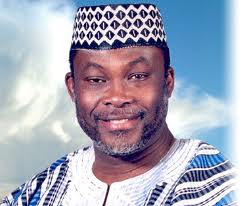 The Petroleum Commission (PC) has noted that many local banks are missing out on a number of risk-free deals in the oil and gas industry due to their failure to research and understand workings in the upstream petroleum sector.
The Petroleum Commission (PC) has noted that many local banks are missing out on a number of risk-free deals in the oil and gas industry due to their failure to research and understand workings in the upstream petroleum sector.
The Acting CEO of the Commission, Theophilus Ahwireng, said a number of promising transactions in the industry have fallen through due in part to the misconception and misunderstanding by banks that activities in the upstream sector are capital intensive and risky.
“If local companies manage to get a contract (in the oil industry) and the only reason they are unable to execute it is because there is no financing — that, I think, is very sad. I think all the efforts being made by institutions to let local companies participate (in the industry) will come to naught.
“And most of the time it is not because there is no financing; it is because both parties do not understand themselves. Most of the time, it is an issue of communication.
“We often hear that the industry is capital intensive and the risk is very high. That is true, but if you drill down these two issues there are areas that we can clearly deal with.
“It is capital intensive; that is correct. An FPSO for instance costs between US$1billion to US$2billion. But that on its own should not scare anybody, because it is not every company that needs to build an FPSO.
“A company may only need to fabricate a small portion of an FPSO that will cost some thousands of dollars. So if this company has a value contract, permission from the petroleum commission to undertake a certain business activity and wants a financial institution to support it to execute a contract, it would be very pathetic if that company loses the contract because the institution does not understand the business.
“There are so many things that these financial institutions must learn. Therefore, it is important for the banks to focus. If they have an oil-desk and participate in workshops, they will understand that beneath that US$1billion to US$2billion contract, there are US$10,000 contracts as well that are basically risk-free,” he said.
Ghana started commercial production of oil almost four years ago, opening up a several billions of dollars industry. The government last year enacted the Petroleum Local Content and Local Participation Regulations, 2013, in a bid to ensure that the country benefits from more than just fiscal receipts of oil revenue by enhancing participation of local firms in the industry.
According to the Petroleum Local Content and Local Participation Regulations, the provisions are meant to among other things promote the maximisation of value-addition and job-creation in the petroleum sector through the use of local expertise, goods and services.
The regulations also provide that entities in the petroleum industry must submit their local content plans regarding the use of local goods and services, and the transfer of advanced technology and skills to the Ghana National Petroleum Corporation (GNPC) or the Petroleum Commission and Ghanaians.
Mr. Ahwireng has however observed that gaps in communication between service-providers in the oil industry and banks is dampening the hopes of many small- and medium-scale businesses wanting to enhance the value that the country gets from the petroleum industry.
He said perceived risks associates with exploratory activities have ricocheted to other companies in the upstream sector, requiring the need to educate banks regarding the various dealings in the industry.
“We talk about high risk; that is true, but there are very low risk deals as well. In the exploration business, the statistical percentage chance of success is about 10%. But a local company is not going to explore and is not exposed to that kind of risk. Their risk profile is different. For instance, a local company can have a contract to provide food, accommodation and vehicles to an oil company…therefore it is wrong to associate the same level of risk with that kind of business and stay away.
“It is important that both parties — local companies and the banks — try to understand what each other does,” he said.





